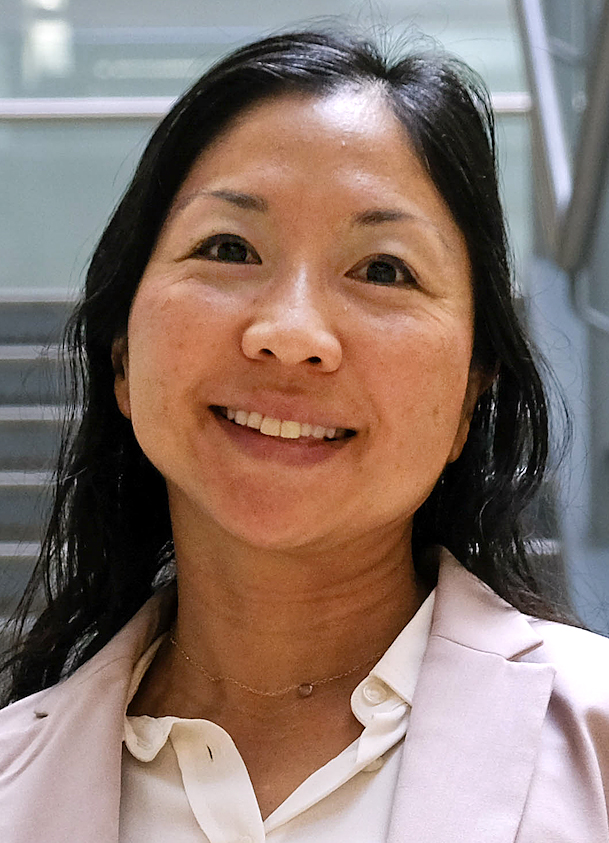Bioethics and Humanities Research Group
The Center for Bioethics and Humanities’ research group is led by a diverse team of internationally recognized scholars, many of whom proudly hold appointments in General Internal Medicine. A program in medical ethics was first established in the School of Medicine by Frank Marsh, JD, Phd, in 1982, which evolved to become the Center for Bioethics and Humanities (CBH) in 2002. CBH researchers work with many divisions and departments, serving as a partner and resource for all at the University. The group is dedicated to tackling pressing ethical dilemmas and shaping the future of healthcare through rigorous research, thoughtful analysis, and impactful advocacy. Our faculty is supported by esteemed institutions like the National Institutes of Health, Commonwealth Fund, Greenwall Foundation and more.
Areas of Research include but are not limited to;
- Professionalism in Medicine
- Medical Marijuana
- Patient Safety
- Electronic medical records
- Evidence synthesis and meta-research
- Artificial intelligence
- Ethics and chatbots
- Brain injury from sport
- End-of-Life
- Medicare
- Conflicts of Interest
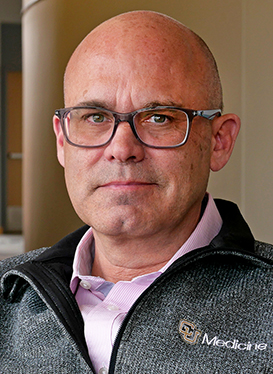
Eric Campbell, PhD
Director of Research for the Center of Bioethics and Humanities
Professor
Dr. Campbell is a survey scientist who conducts research at the intersection of health policy and bioethics. In health policy Dr. Campbell’s research focuses on professionalism in medicine, medical marijuana, research policy, patient safety and electronic medical records. In bioethics Dr. Campbell’s research is focused on conflicts of interest in medicine and research, physician self-regulation, truth telling in medicine and access to care for patients with disabilities. His work has been consistently supported by funds from the National Institutes of Health and independent foundations including, but not limited to the Commonwealth Fund and the Greenwall Foundation.
Dr. Campbell is the author of more than 150 articles, chapters, reports and book reviews. His work has been consistently published in JAMA, the New England Journal of Medicine, Annals of Internal Medicine, Health Affairs, and other leading medical and ethics journals. He has been interviewed by leading media outlets including NPR, CBS, NBC, CNN, Time, New York Times, Washington Post and the Boston Globe.
Dr. Campbell spent the first two decades of his career at the Massachusetts General Hospital and Harvard Medical School where he ultimately served as Professor of Medicine, Associate Director of the Mongan Institute Health Policy Center and Director of Research at the Center for Bioethics. In 2018 he joined the University of Colorado School of Medicine as a Professor of Medicine and Director of Research at the Center for Bioethics and Humanities.
Eric Campbell's Profile
Matthew Wynia, MD, MPH, FACP
Director of the Center for Bioethics and Humanities
Professor
Dr. Wynia is a clinician-researcher and leader in bioethics with a history of exploring some of the most contentious ethical issues in health care, focusing on those related to the social roles of health professionals. He is a professor of medicine and of public health at the University of Colorado, where he directs the CU Center for Bioethics and Humanities.
Prior to his current role, he spent 18 years at the American Medical Association, where he led the AMA Institute for Ethics, the Center for Patient Safety, and was Director of Patient and Physician Engagement for the Improving Health Outcomes team. While there, he co-founded the Commission to End Health Care Disparities and he led the Project on the History of African-Americans and the Medical Profession that, in 2008, prompted the AMA’s public apology for a legacy of racial discrimination and exclusion in organized medicine. He has served on advisory boards for the US DHHS Office of Minority, the Joint Commission, the American Board of Medical Specialties, American Board of Internal Medicine, and other national medical, public health and bioethics professional organizations. At the National Academies, he currently serves on the Board on Health Sciences Policy and has served on multiple consensus committees and chaired special projects on team-based care, transdisciplinary professionalism, and public health approaches to preventing targeted violence.
Dr. Wynia has delivered more than 2 dozen named lectures and visiting professorships and he is an author of over 230 academic publications. He is a Fellow of the Hastings Center, past president of the American Society for Bioethics and Humanities (ASBH), and past-chair of the Ethics Forum of the American Public Health Association (APHA) and the Ethics Committee of the Society for General Internal Medicine (SGIM).
Matthew Wynia's Profile
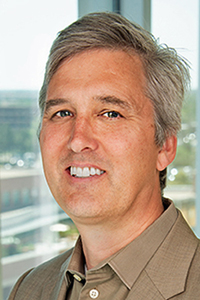
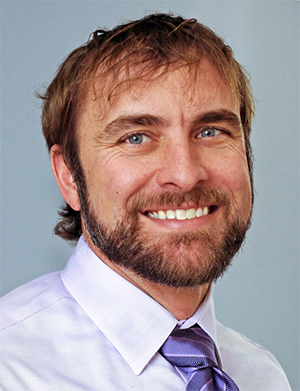
Matthew Decamp, MD, PhD
Associate Professor
Dr. Decamp, is an Associate Professor in the Center for Bioethics and Humanities and Division of General Internal Medicine. A practicing internist, health services researcher and philosopher, Dr. DeCamp employs both empirical and conceptual methods to identify and solve cutting edge problems at the interface of health care, policy and bioethics. Special emphases of his research include engaging patients in health care organizational decision-making, ethical issues in artificial intelligence (AI), and global health (with a focus on short-term global health ethics). He serves as Director of Research Ethics for the Colorado Clinical and Translational Sciences Institute (CCTSI) and is a member of the Partnership of Academicians and Communities for Translation (PACT) Council of the CCTSI.
Recent projects have included (with Hillary Lum and Stacy Fischer) a supplement to the Palliative Care Research Cooperative examining the social, cultural, and ethical factors that promote COVID-19 vaccination among the understudied, underserved, underrepresented population of home health aides nationally and a bioethics supplement within the UJMT consortium (with Benjamin Chi, Valerie Paz Soldan, Lameck Chinula, and Limbanazo Matandika) to develop new training materials on “decolonizing” global health. In 2022, he completed a project, with Co-PI Dr. Anthony So, a Greenwall Foundation funded project examining ethical challenges in the mass drug administration of antibiotics globally - findings are available here. After original funding from an NIH bioethics supplement, Dr. DeCamp continues to serve as Ethics & Engagement Advisor for the Palliative Care Research Cooperative Group.
In Spring 2022, he taught a semester-long course, Global Health, Bioethics, and Human Rights, for the Certificate in Health Humanities and Ethics in the Graduate School.
Dr. DeCamp is an award-winning teacher and mentor, and has more than a decade of service on Institutional Review Boards.
Matthew Decamp's Profile
Lisa Bero, PhD
Professor
Professor Bero is a leader in evidence synthesis, meta-research and studying commercial determinants of health, focusing on tobacco control, pharmaceutical policy, and public health. She provides international leadership for multidisciplinary teams that specialize in studying the quality, use and implementation of research for health and health policy. She is Senior Editor, Research Integrity for the Cochrane Collaboration and was Co-Chair of the Cochrane Governing Board 2014-2018.
Dr. Bero has developed and validated qualitative and quantitative methods for assessing bias in the design, conduct and dissemination of research. She has pioneered the utilization of internal industry documents and transparency databases to understand corporate tactics and motives for influencing research evidence.
She is internationally recognized for her work on evidence synthesis, bias, conflicts of interest and use of evidence in decisions as shown by media coverage, speaking invitations and service on national and international committees, such as US National Academies of Science Committees, the World Health Organization Essential Medicines and guideline committees.
Lisa Bero's Profile

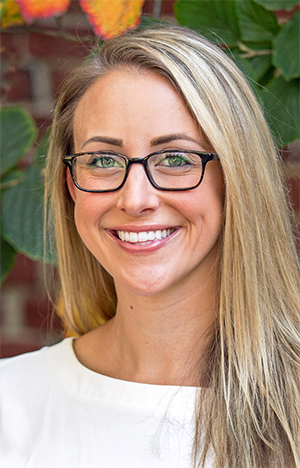
Christine Baugh, PhD, MPH
Assistant Professor
Dr. Baugh conducts interdisciplinary research at the intersection of health, policy, sport and ethics. Much of her work has focused on the acute and chronic health implications of repetitive brain injury from sport, and the resultant individual, institutional, policy and ethical considerations. Dr. Baugh is the author of more than 50 peer-reviewed research articles. Her work has been featured by leading media outlets including the New York Times, Washington Post, ESPN and Sports Illustrated. She has won numerous awards for her teaching and research, including being named to Forbes 30-under-30 list in sports.
Christine Baugh's Profile
Lauren Nicholas, PhD, MPP
Professor
Lauren Hersch Nicholas is a health economist whose research focuses on the role of public policy in improving health and healthcare quality for the elderly. Her current research combines survey, administrative, and clinical data to study the interaction between healthcare utilization and economic outcomes. Dr. Nicholas's work uses clinical and econometric approaches to answer questions in medical and health economics, particularly for dementia, surgery and end-of-life care.
Her research has been recognized with prestigious awards including the National Academy of Social Insurance John Heinz Dissertation Award, the AcademyHealth Article-of-the-Year Award, and the HCUP Most Outstanding Article Award.
Dr. Nicholas is an associate professor in the Division of Geriatrics at the CU Anschutz School of Medicine, part of the core faculty of the Center for Bioethics and Humanities, and has a secondary appointment in the CU Denver Department of Economics.
Lauren Nicholas's Profile
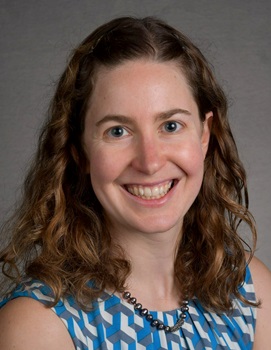
.jpg?sfvrsn=88276fb4_0)
Rachel Topazian, PhD
Assistant Professor
Rachel Topazian is an Assistant Professor in the Division of General Internal Medicine in the University of Colorado School of Medicine and a core faculty member at the Center for Bioethics and Humanities. Her research examines the intersection of ethics, technology, and policy in occupational settings. She is interested
in understanding the ethical and structural factors that facilitate or hinder occupational health, safety, and wellbeing, and the implications for practice and policy.
Rachel Topazian's Profile
Jennifer Oshita, PhD, CCC-SLP
Post-Doctoral Fellow
Jennifer Oshita, PhD, CCC-SLP is a post-doctoral research fellow with the Center for Bioethics and Humanities
at the University of Colorado. Dr. Oshita is a health services researcher who examines the healthcare access barriers contributing to disparate outcomes experienced by adults with communication-related disabilities. In designing solutions to reduce health disparities for these populations, she focuses on stakeholder-centered and implementation science methods.
